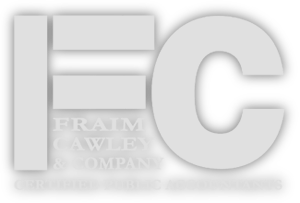Originally published October 21, 2013
My favorite uncle, Sam Stevens, has always had a lot of insight. Throughout my life I’ve often looked to him as a source of perspective and discernment. One of my favorite pieces of advice that he gave actually wasn’t directed at me, but to another one of his nephews – John.
As most every other young man has been at one point or another, John was in love. He was hopelessly enamored with a girl who, by all measures, was absolutely gorgeous. He asked Sam what he thought about her. Sam’s response went something like this:
Sam: Think for a second about how you feel when you get a nice, wrapped gift
John: What do you mean?
Sam: You know, you get the box and it’s wrapped in nice, decorative paper. It’s covered in ribbons and bows. It looks beautiful and you’re just brimming with anticipation to see what’s inside
John: Right
Sam: Now think about how you would feel if you got the box, took off the ribbons, ripped off the paper, and there was nothing in there – it was totally empty. Think about how disappointed you would be
John: Sure…
Sam: *laughing* That girl – you’ve got an empty box right there
“”
I always chuckle when I remember that story, but it has been one that has stuck with me. Presentation is only as good as the reality of what is inside. That bit of wisdom from Uncle Sam was dating advice, but it has much broader applications. In our businesses, could we inadvertently become “empty boxes” to our clients and customers?<
How might this happen? As I’ve mentioned multiple times before, I believe most of the people I meet and work with are great at what they do. Their craftsmanship and expertise are generally impeccable. But that doesn’t always translate into a successful business. And sometimes this has to do with client expectations and how we manage them. I see two errors arise in business operations: 1) overselling or 2) underperforming. I know, both sound so basic you might question why I am even expounding on them. But they can affect us in ways we may not even realize.
Overselling
Is it possible that our presentation (wrapping) is overselling our performance/product (box content)? With everyone, but especially with new clients, we are understandably keen to please. We want to get their business and we want to make our services attractive to them. But what if our pitch is a wee bit too attractive?
For instance, I always state my case that I am more affordable than other CPAs, that I give more personal service, and that I provide far superior quality than “bargain” accountants. In my humble opinion, all of that is true. But what if I tried to guarantee that I would save you 90% of the cost of any other CPA firm? Or that you could call me at 3 a.m. to ask me a question and I’d answer, jump out of bed, and come meet you at your office every time? Or that I would save you five times as much on your taxes as a cheapo accountant?
At a certain point, it doesn’t matter how well I perform – there is no way I could be remotely close to the unrealistic bar I unnecessarily set for myself. While we do not want to be a “Debbie Downer” or be so conservative that there isn’t any reason for client to use us or buy our product (confidence is important after all), we also want to be reasonable in our promises
Underperforming
I just got through saying that most people are very good at what they do, so how might this happen? There are two possibilities:
- We get in a hurry and quality suffers
- We are so focused on other things we do not have the time to adequately commit to each client
The first point does unfortunately happen (a lot, actually), but again – most of the people I deal with personally and professionally have such pride in their work that doesn’t happen frequently. The second point though, is where even the most well-intentioned person can get into trouble. I think the prototypical example of this is a contractor trying to juggle jobs. Not wanting to turn down work, they might take 5-10 jobs on at once and try to manage them all simultaneously. This is often only partially successful, customers have to keep calling to see what is going on, and the jobs end up taking longer than expected. Even when the end result is fantastic, no one is completely pleased with the process – because of the irritation over perceived broken promises.
For different reasons, the same can happen to any of us. Most of us are trying to grow our businesses. But how would our existing clients feel if we started neglecting them because we were spending so much time trying to court new business? Even if we were not doing sloppy work, if we did not commit adequate time to each client, then the relationship would inevitably suffer.<
Conclusion
All of us do well to take stock of how we are presenting ourselves and how we spend our time. If there is a disparity that is too large – either because we promise too much or give too little – our customer satisfaction will decrease and may harm the relationship for the future.
Please visit me online at FraimCPA.com or call me at (540) 314-0345 if you have any questions or would like to schedule your free consultation.
IRS Circular 230 Notice: To ensure compliance with requirements imposed by the IRS, we inform you that any federal tax advice contained in this communication (including any attachments) is not intended or written to be used, and cannot be used, for the purpose of avoiding penalties under the Internal Revenue Code.




